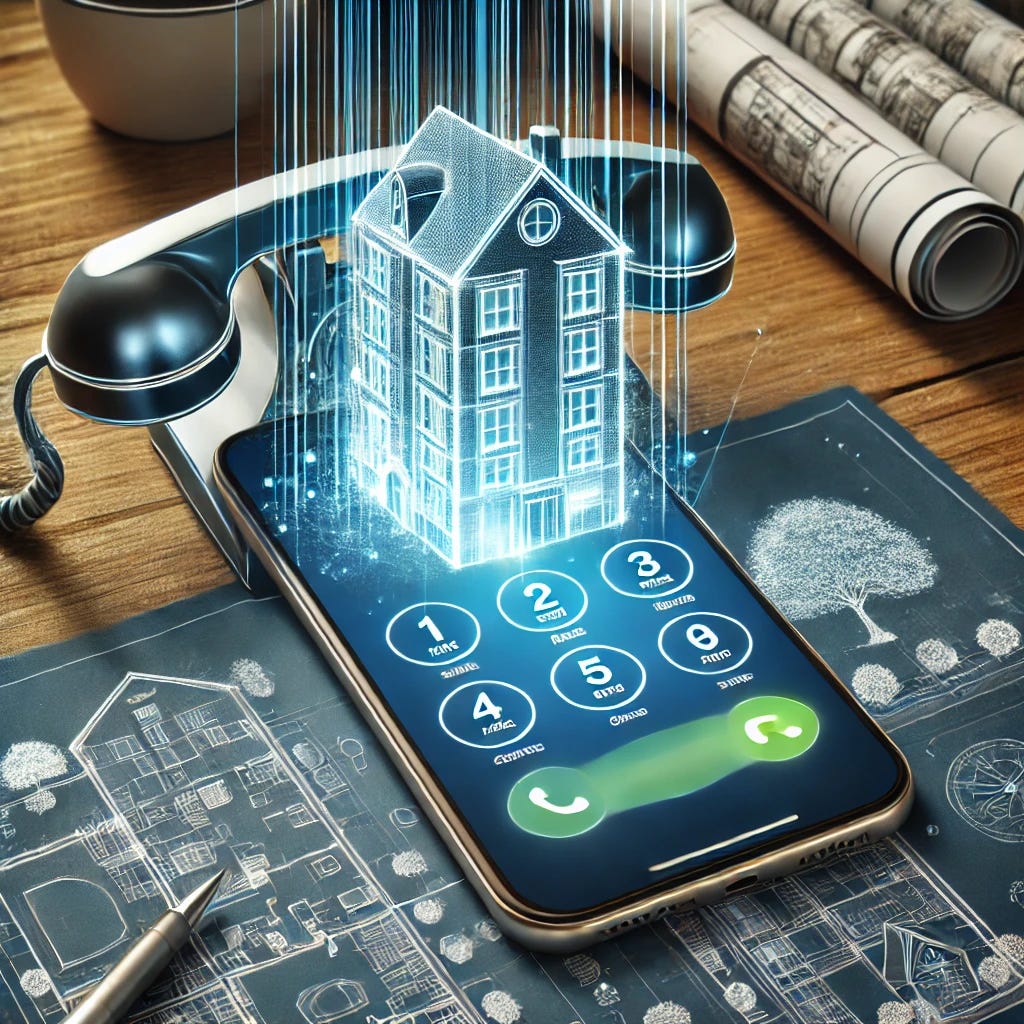Cold Calls: The Secret Sauce to Success in Real Estate Development
The Real Secret to Finding Off-Market Deals
In a world dominated by email campaigns, social media marketing, and automated lead generation tools, the humble cold call might seem like an outdated relic. Yet, in the high-stakes world of real estate development, cold calls remain one of the most effective and underutilized strategies. Why? Because real estate is ultimately about relationships, and nothing builds connections faster than a conversation.
The Power of Cold Calls in Real Estate Development
Cold calls have a unique ability to open doors that would otherwise remain closed. In the competitive real estate development industry, where opportunities often arise from personal connections or insider knowledge, making a phone call can mean the difference between winning and losing a deal.
Statistic to Consider: According to industry surveys, cold calls have an average success rate of 1-3%. While this might sound low, consider that one successful call could lead to a deal worth millions.
Why Cold Calls Work
1. They Show Initiative
Cold calls demonstrate proactiveness—a trait highly valued in real estate. When you pick up the phone, you signal to the person on the other end that you’re willing to go the extra mile.
2. They Foster Immediate Connection
Unlike emails or social media messages, cold calls allow for real-time interaction. Tone, inflection, and instant feedback create a more engaging and memorable experience.
3. They Cut Through the Noise
Inboxes are flooded with messages every day, but fewer people are picking up the phone to make a genuine connection. A cold call can stand out as a refreshing change.
The Real Secret to Cold Calling and Finding Off-Market Deals
The real secret to cold calling success isn’t trying to rip off the seller. It’s finding a way to pay the seller more than the market value while also paying less than your maximum predetermined value. This approach creates a win-win situation where both parties feel they are getting a fair deal, fostering trust and increasing the likelihood of closing.
When cold calling a potential seller, always know the price you are offering. Never ask the seller what they want—this starts a death spiral of negotiating over who goes first. Taking control of the offer not only positions you as confident and prepared but also ensures the conversation stays productive.
A Real-Life Example
Let’s look at John, a budding real estate developer in Toronto. John secured his first big project by cold-calling a property owner whose building was not actively listed for sale. By offering slightly above market value—but still within his budget—John’s persistence paid off, leading to a $5 million development deal.
How to Make Cold Calls Work for You
Here’s a step-by-step guide to turning cold calls into hot leads:
1. Preparation is Key
Research your target—know their property, their business, and any recent developments.
Prepare a concise pitch that outlines your value proposition.
Have a list of common objections and your responses ready.
2. Perfect Your Timing
Best times to call: mid-morning (10 AM to 11 AM) and mid-afternoon (2 PM to 3 PM).
Avoid calling first thing in the morning or during lunch hours.
3. Structure Your Call
Opening: Introduce yourself and state the purpose of your call.
Engagement: Ask open-ended questions to understand their needs.
Pitch: Share how you can provide value or solve their problems.
Close: Secure a follow-up meeting or permission to send additional information.
4. Track Your Results
Use a CRM system or a simple spreadsheet to log calls, outcomes, and next steps. Analyze your data to identify patterns and improve your approach.
Visualizing Success
Chart Idea: A bar graph comparing the effectiveness of cold calls, emails, and social media outreach in generating leads for real estate development. Highlight the higher conversion rates of cold calls in certain scenarios.
Image Suggestions:
A real estate professional at a desk with a phone and notes.
A property deal being signed after successful negotiations.
A visualization of a CRM dashboard tracking cold calls.
Embrace the Challenge
Cold calling isn’t easy, but it’s a skill worth mastering. It builds resilience, sharpens your communication abilities, and connects you with opportunities you might never have discovered otherwise.
So, the next time you hesitate to pick up the phone, remember this: every successful real estate developer has faced rejection. What sets them apart is their willingness to persist.
Call to Action: Have you made a cold call today? Share your story in the comments below or hit reply to let me know your thoughts. Let’s keep the conversation going!
Subscribe for more actionable insights on real estate development and business growth. Let’s build success together.







